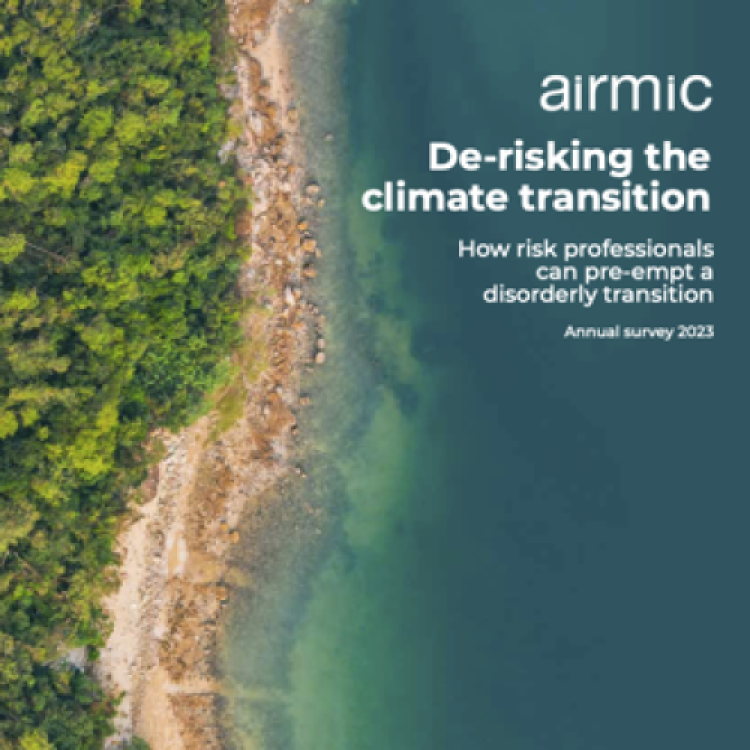Risk managers can help forestall disorderly climate transition – Airmic report

A new survey report from Airmic and KPMG on moving to a net-zero economy was released at the Airmic conference.
De-Risking the Climate Transition noted how risk professionals are uniquely positioned to bring synergy between insurers, which are making some of the most consequential climate commitments in the world, and the businesses and organisations they are helping to navigate the climate transition.
Airmic members are important insurance buyers, accounting for £14.5bn of insurance bought for their organisations last year.
Yet a slight majority (53%) of respondents said they lacked clarity around their organisation’s budgets for transition.
Members were concerned with the problem of accurately measuring their organisations’ emissions; a need for more consistency in the questions asked by underwriters; and how concerns over reputational risks trump all other climate-related insurance gaps.
that the report also raised concerns that the onslaught of climate regulations could lead to less disclosure and more ‘green hushing’; pension fund investments are being affected by anti-ESG legislation in the US; risk professionals are looking to insurers, brokers, and consultants to help with data and project management, reporting, and modelling around TCFD and other requirements.
The survey found that concerns were most keenly felt over the reputational risk around climate-related insurance gaps. Some 47% said that this was their protection gap for insurance coverage around climate risk, followed distantly by extreme temperatures at 34%.
Hoe-Yeong Loke, head of research for Airmic, spoke at the conference about how the voice of the customer is becoming more consequential in the insurance industry’s climate transition.
“Over 40% of respondents say they consider the positions of insurers and brokers on ESG issues, when considering whom they will use. Airmic members are increasingly including reference to ESG priorities and actions in their insurance renewal presentations.”
Included in the report is the result that 81% of respondents said that their firms had put in place a plan to reach net zero, with 100% of those saying that there was also a plan in place to achieve it.
Of the 19% that said there was no plan in place, a little over two thirds said that they were expecting to see a net zero ambition disclosed within the future.
These numbers were a significant increase on the previous year’s figures, in which 74% said that their firms had a plan in place to achieve net zero, with nearly half of those responding in the negative expecting such a move in the future.
However, it was found that clearer strategies were needed to finance the transition to net zero.
To transform the global economy to achieve net zero emissions by 2050, it is estimated that $9.2trn in annual average spending on physical assets is needed. That works out to be $3.5tn more than current levels of spending – or half of global corporate profits and one-quarter of total tax revenue.
The report added: “Yet, a majority of our survey respondents lack clarity about the budget which their organisations have set aside for their transition plans. […] Climate transition plans are not just a cost centre for organisations – there are opportunities to be seized. Supplying the goods and services to enable the global net zero transition could be worth £1trn to UK businesses by 2030.”
